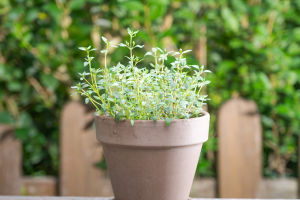If you've ever apologized to a houseplant after bumping into it or talked to your tomatoes while watering them, you're not alone. Many gardeners and plant lovers treat plants as something more than passive green life forms.
But is there any scientific basis to believe that plants feel anything at all?
This question touches on an emerging field that blends plant physiology, neurobiology, and philosophy: plant consciousness. While the idea may sound like science fiction, research over the past few decades has uncovered surprisingly complex behavior in plants—enough to challenge our long-held assumptions about what it means to "feel" or "know."
What Does "Feeling" Even Mean?
Before diving into whether plants have emotions, it's essential to define what we're really asking.
1. Are we talking about physical reactions?
If so, the answer is already yes. Plants clearly respond to light, gravity, temperature, and even touch.
2. Or are we asking about subjective experience?
This is trickier. Human emotions—like fear or happiness—are tied to brains and nervous systems. Plants don't have either. So can they still have a form of awareness?
That's where the conversation turns interesting—and controversial.
Plants React to Stimuli in Complex Ways
Plants may not cry or smile, but they definitely sense and respond to their surroundings. Here are some striking examples:
1. Mimosa pudica folds when touched.
This plant, known as the "sensitive plant," rapidly collapses its leaves when disturbed. Scientists like Monica Gagliano, an evolutionary ecologist, conducted experiments showing that these plants can learn not to overreact to harmless stimuli like water droplets. When exposed repeatedly to the same stimulus, they eventually stop folding—suggesting a kind of memory.
2. Trees warn each other.
In a forest, when one tree is attacked by insects, nearby trees may ramp up their chemical defenses—like producing bitter compounds to deter pests. This phenomenon, described by forest ecologist Dr. Suzanne Simard, is part of a vast underground network sometimes called the "Wood Wide Web." Fungi connect root systems, allowing trees to share nutrients—and possibly information.
3. Plants respond to sound and touch.
Experiments have shown that some plants grow differently when exposed to specific sound frequencies. For example, roots may grow toward the sound of water flowing through a pipe. Others, like climbing beans, can sense the presence of nearby supports before touching them.
No Brain, But Maybe Intelligence?
This is where language becomes a challenge. Plants clearly don't think like humans, but that doesn't mean they're unresponsive or unaware.
Michael Pollan, author of The Botany of Desire, argues that plants show a kind of "problem-solving intelligence." They can adapt strategies, alter growth directions, and prioritize certain functions under stress—all without neurons. In 2006, researchers discovered that plants use electrical signaling through their cells in a way that's surprisingly similar to a nervous system, though slower and less centralized.
Are We Projecting Too Much?
Skeptics warn against anthropomorphizing. Dr. Lincoln Taiz, a plant physiologist at UC Santa Cruz, cautions that while plant behaviors may seem intelligent, they don't necessarily imply consciousness. "To assign human-like feelings to plants is to misunderstand what consciousness is," he argues. Just because plants react doesn't mean they experience anything in the way animals do.
Still, Taiz and others agree: plants are more dynamic than once believed. The real debate is whether complex behavior alone is enough to suggest subjective experience.
Why This Question Matters
You might wonder—why does any of this matter? Even if plants respond to stimuli, what difference does it make?
1. It changes how we see ecosystems.
If plants communicate and make decisions, then ecosystems become more like communities than collections of individual species.
2. It challenges our ethics.
While few are suggesting we stop eating plants, acknowledging their complexity could affect how we grow and manage them—perhaps leading to more humane agricultural practices, or at least more respect for plant life.
3. It redefines intelligence itself.
Maybe we've been too narrow in how we define intelligence. If plants exhibit memory, decision-making, and cooperation without a brain, we may need to expand our understanding of consciousness beyond the human model.
So—Do Plants Have Feelings?
Not in the way you and I do. But they can perceive, remember, and respond in ways that hint at something deeper. Whether you call it consciousness, intelligence, or simply advanced biology, the takeaway is clear: plants are not passive life forms. They're active participants in their environments.
Next time you prune a branch or walk through a forest, consider what unseen interactions are happening all around you. Maybe you'll think twice before calling a plant "just a plant."
Have you ever felt like your plant reacted to your voice or presence? Science hasn't answered every question yet—but you just might be picking up on something real.


